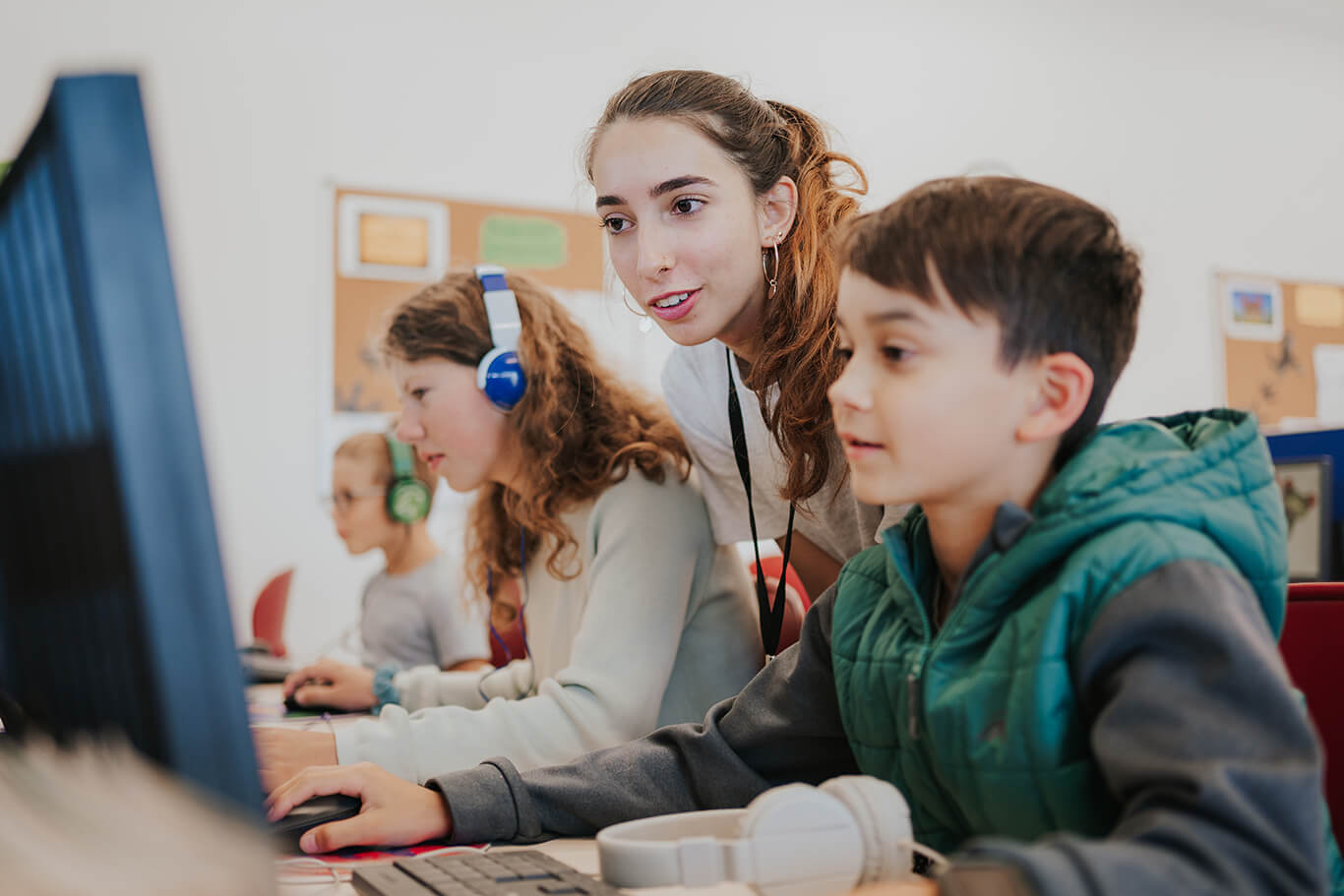How to Keep Children Safe Online
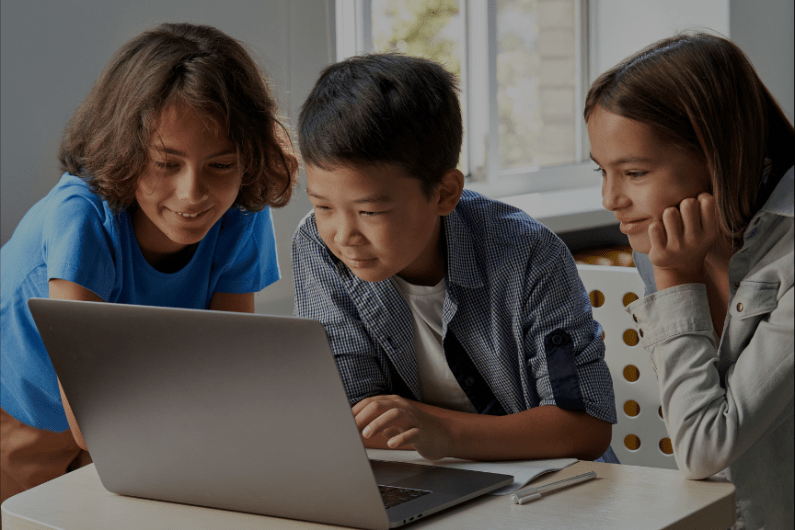
In this rapidly advancing technology era, the internet has become an integral part of our daily lives, providing children with unprecedented access to information and entertainment.
Is your child struggling to keep up with schoolwork? Are they falling behind? Are they bored in class? Or are you looking for extension work for your child? Check out our eBook to learn more about how we help your child improve academically and build confidence through our in-centre after-school tuition.
While the digital world offers numerous educational opportunities, it also poses potential risks and dangers for our children. As parents, it is crucial to understand these risks and take proactive measures to protect our children while they navigate the online realm.
Empowering Digital Literacy and Skills
In today's world, digital literacy is essential for success and safety. Parents should engage in open conversations with their children about online safety and empower them with the necessary skills to navigate the digital landscape responsibly.
This includes teaching them about privacy, identifying potential risks and inappropriate online behaviour, and promoting ethical behaviour online. By nurturing digital literacy, parents can ensure that their children are well-prepared to make informed decisions and avoid potential dangers while using the internet.
Setting and Discussing Boundaries and Rules
With the vast amount of content available online, protecting children from inappropriate content and behaviour can seem overwhelming. However, setting boundaries and establishing clear rules for internet use can significantly enhance their safety.
Engaging in open discussions and talking about online safety with children helps them understand the importance of responsible online behaviour, the boundaries you’ve set and what to do if they encounter harmful content. By talking and communicating openly, parents can create a safe digital space for their children.
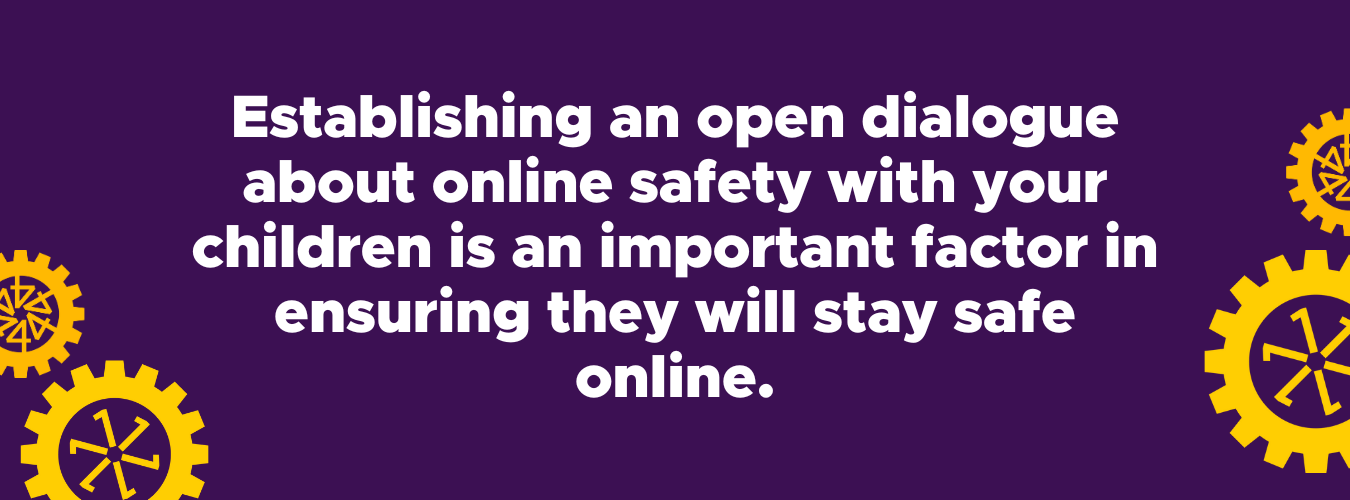
Some Topics of Open Discussion Could Include:
- Setting specific time limits for your child's daily screen time, including time spent on devices like mobile phones, tablets, computers, and gaming consoles.
- Establish a rule that your child must seek parental approval before creating new accounts on social media or downloading new apps.
- Discuss with your child what types of websites, apps, and online content are suitable for their age.
- Setting a minimum age requirement for social media platforms, as many social media sites have age restrictions for registration.
- Teach them to recognise signs of cyberbullying and encourage open communication so they can confide in you if they experience or witness such behaviour.
- Teaching your child about the risks associated with downloading files or apps from untrusted sources.
Keeping track of time limits, social media and online content can be challenging. Luckily there are several different tools and apps you can use.
Parental Controls for Younger Children
To protect younger children from exposure to harmful content, parental controls are a good tool. Internet browsers such as Google Chrome, Safari and Firefox offer parental control features that allow parents to filter out inappropriate content and restrict their children from accessing certain websites.
By utilising parental controls, parents can create a secure, safe online environment for their kids, ensuring their children's internet experiences remain age-appropriate and safe.
You could install a net nanny service on all of your family devices to prevent your children from accessing dangerous or mature content. Alternatively, you can take advantage of your web browser's parental controls, which allow you to filter the content that is shown by the browser.
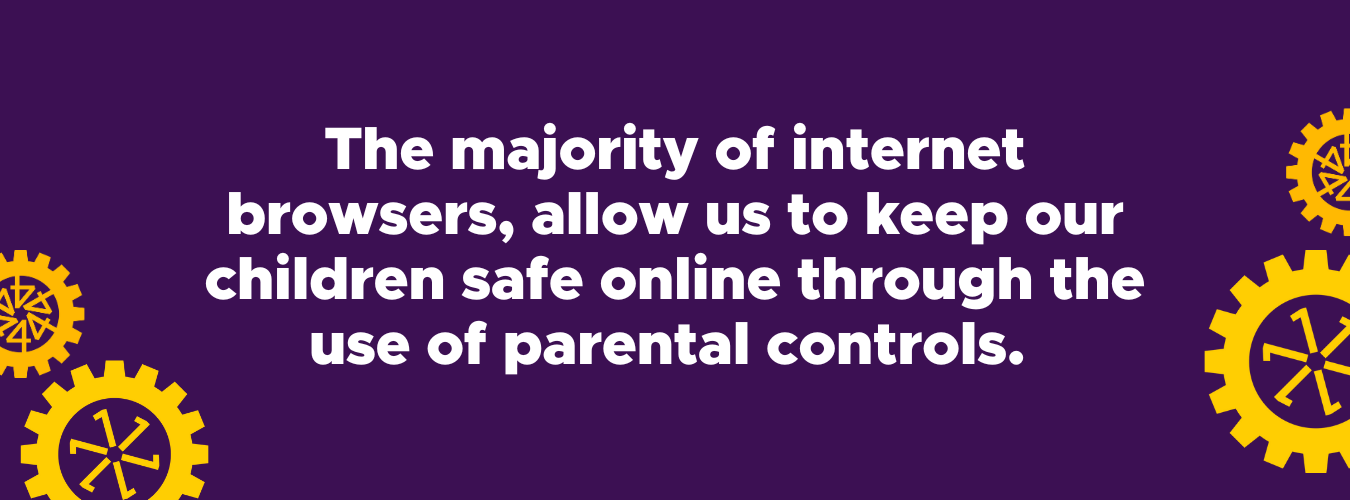
Utilising Specialist Monitoring and Reporting Tools
Monitoring and reporting tools provide valuable insights into a child's online activities. Parents can use these tools to track their child's internet usage, including websites visited, apps used, and the duration of the child's online activity sessions.
While these tools are not a substitute for open communication, they serve as an extra layer of child protection, alerting parents to any potential risks and enabling timely intervention.
Monitoring Your Child Online
As children grow older, they naturally seek more independence, including exploring the internet without constant supervision. However, periodic monitoring of their online activities is essential to ensuring their safety. Parents should establish a level of trust and openness with their children, encouraging them to share their online experiences.
Being aware of who they play online games with and interact with, what sites they search for, and the content streaming services and sites they consume allows parents to protect their children from potential online dangers.
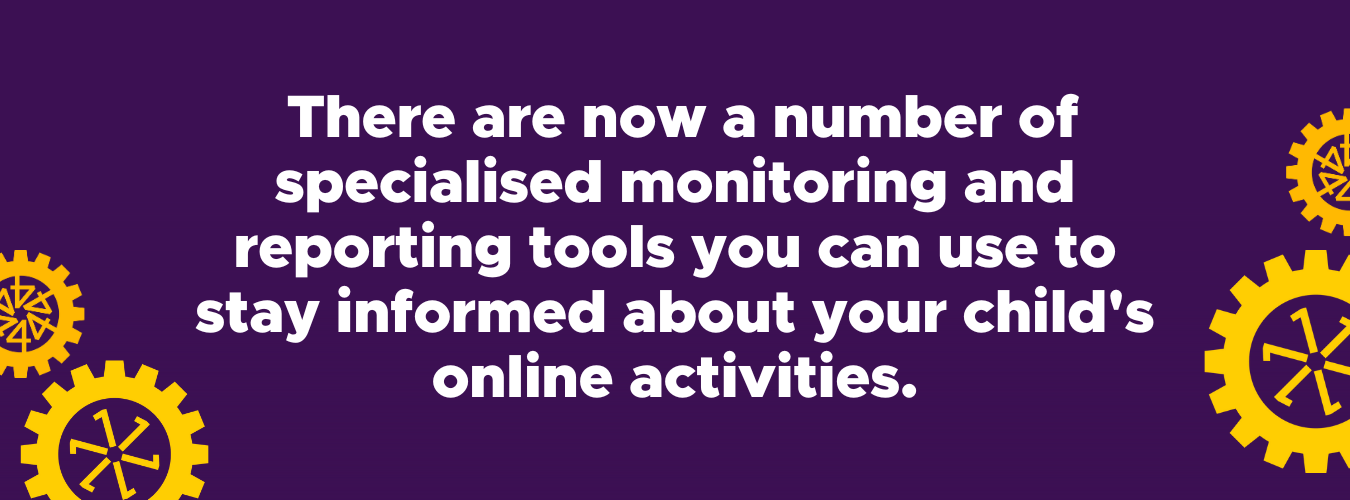
Setting Social Media Safety Rules
Social media platforms and sites have become a predominant part of our lives, and children are no exception to this. While social media fosters connections with people online, it also harbours potential dangers.
Parents should set clear safety rules for their children's social media usage, with rules such as:
- Don’t publish personal information, such as their phone number, home address, and date of birth.
- Be mindful when sending messages or interacting with others online.
- Be careful when posting content or images because anything posted online stays online.
- Don’t have private conversations with or send photographs to people you do not know.

Keeping Screens and Devices Visible
Maintaining oversight of a child's online activities is facilitated by keeping screens and devices in common areas of the home such as the kitchen or lounge. This approach encourages transparency and open communication, allowing parents to be more aware of their children's digital experiences and fostering discussions about online safety.
Protecting Your Child's Privacy
Teaching children about online privacy is vital to protecting them from potential risks online. Parents should educate their children about the importance of keeping private information private and not sharing it with strangers online. Additionally, parents should emphasise the distinction between appropriate sharing online and maintaining privacy in real life.
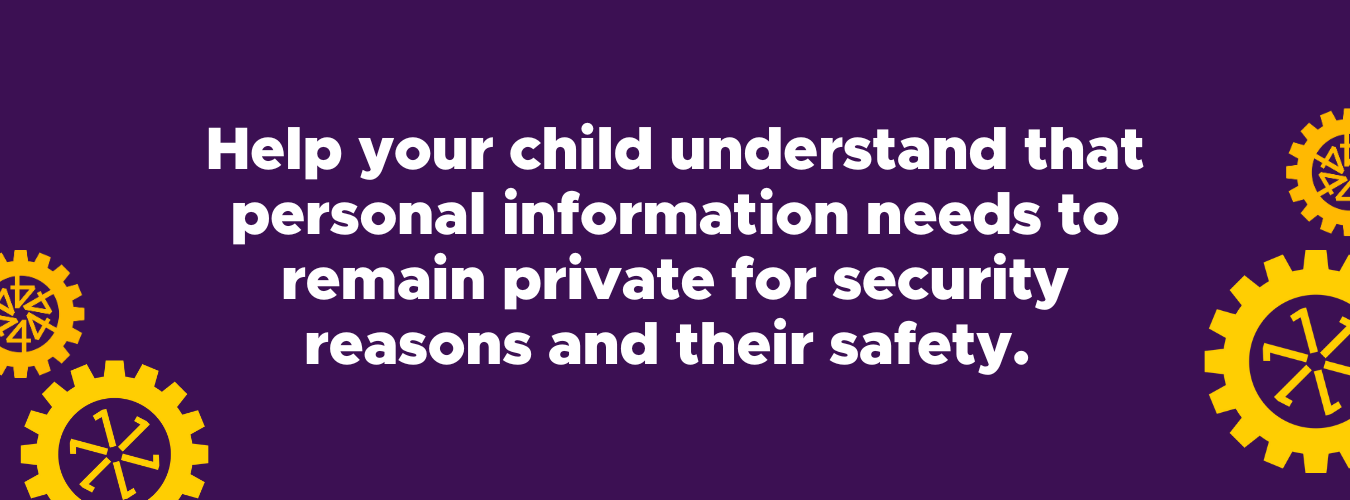
Practising Online Stranger Danger
Educating children about online stranger danger is crucial in the digital age. Children should be taught to exercise caution when interacting with strangers online and to recognise potential red flags. Encouraging open communication with kids, parents, and other trusted adults enables children to seek help if they feel uncomfortable or encounter unsafe situations online.
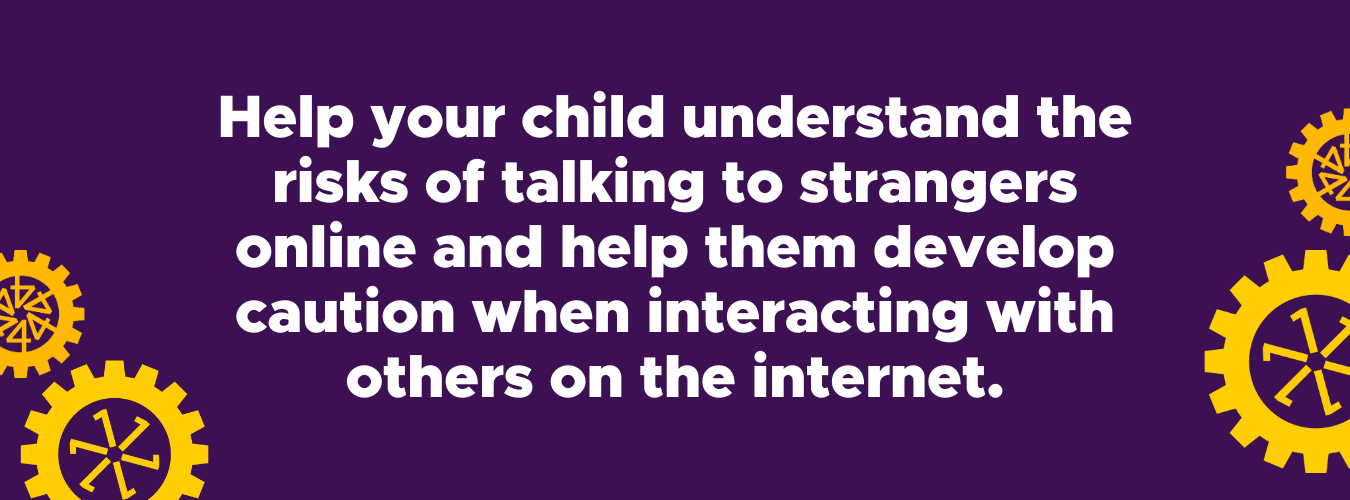
Leading by Example
Parents play a critical role in shaping their children's behaviour, both offline and online. To instil responsible online habits in their children, parents must lead by example. Demonstrating safe online behaviour and responsible internet usage sets a precedent for children to follow.
Parents should be mindful of their digital activities, use social media responsibly, and respect the privacy of others. Engaging in open discussions about their own online experiences and learning from potential mistakes can provide valuable insights for children, helping them make informed decisions in their online endeavours.
By prioritising transparency, protecting privacy, fostering a supportive digital community, and leading by example, you can further enhance and protect children’s online safety. With these measures in place, parents can confidently allow their children to benefit from the vast educational opportunities the internet provides while mitigating the potential risks young people take online alone.
At NumberWorks'nWords, we provide a secure and engaging learning environment for children, guided by passionate tutors dedicated to enhancing their academic performance. For more information about our maths and English tutoring programs, please contact your local centre or schedule a free assessment today.
Remember, by implementing the right measures, parents can empower their children to safely navigate the internet's endless possibilities, stay safe online, and be responsible digital citizens in the ever-evolving digital world.




